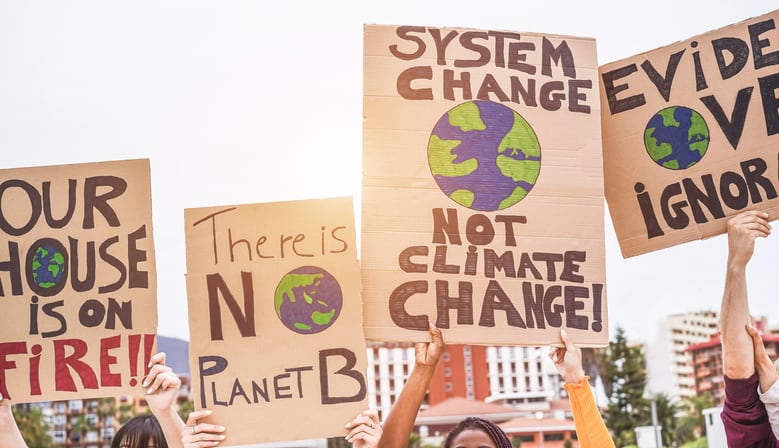In its latest White Paper How to Become a Sustainable Brand, the market research provider outlined six key drivers behind sustainability in the global market: NGO pressure; brand reputation; business resilience; environmental legislation; growth opportunities; and economic profit. Sustainability, it said, was “no longer optional” and now increasingly “part of the business bottom line”.
Climate change worry, positive impact products
According to Euromonitor International global survey data, 61% of consumers were worried about climate change and 54% believed their purchasing decisions could make a positive impact on the world.
More broadly, ‘ethical living’ could now be considered “the most influential megatrend” within sustainability, Euromonitor International said, as most consumers considered sustainability as related to ethical claims, like eco-friendly and locally-sourced.
However, as consumer trends and market drivers continued to fast-evolve, Maria Coronado Robles, senior sustainability consultant at Euromonitor International and author of the paper, said it was important industry kept up.
“Leading sustainable businesses are those that can adapt to global trends while also anticipating market dynamics and competitors’ moves. Understanding future sustainability trends allow brands to come up with unique solutions that position the business ahead of the game,” Coronado Robles wrote.
Living with less, demanding more
Euromonitor International had identified three key consumer trends set to carve out the future of sustainability:
. Consumer activism
. Living with less
. ‘I want to know more’
Consumer advocacy, it said, would continue its push for more sustainable actions, adding pressure to corporations and governments to make important changes. Consumers would also continue to seek out more efficient use of resources, with leasing, co-working, co-living and reusing defining lifestyles of the future, particularly among millennials. Alongside this, consumer expectations would continue to rise, with increased demands for information and transparency.
Collaboration and ‘active leadership’

Aligning with these consumer trends required brands to transition from a ‘me’ to ‘we’ mentality through global, cross-industry collaboration; put purpose over profit with a proactive business approach to sustainability; and shift knowledge into action, Euromonitor International said.
Coronado Robles said “disrupting digital technologies” like blockchain and Internet of Things (IoT) could be used to increase supply chain transparency; “active leadership” from CEOs and senior managers would also be key in solving sustainability.
“Sustainability is no longer optional and is increasingly becoming part of the business bottom line. Understanding what sustainability means for a brand and learning how to create a successful sustainability strategy is key in ensuring a business’ long-term operations and unlocks investment opportunities that are tied to the UN Sustainable Development Goals (SDGs),” she wrote.
Member States adopted the United Nations’ 2030 Agenda for Sustainable Development in 2015.
“…As sustainability shifts from optional to essential, brands investing in sustainable innovation will be uniquely positioned to lead in this space over the years to come,” Coronado Robles said.




